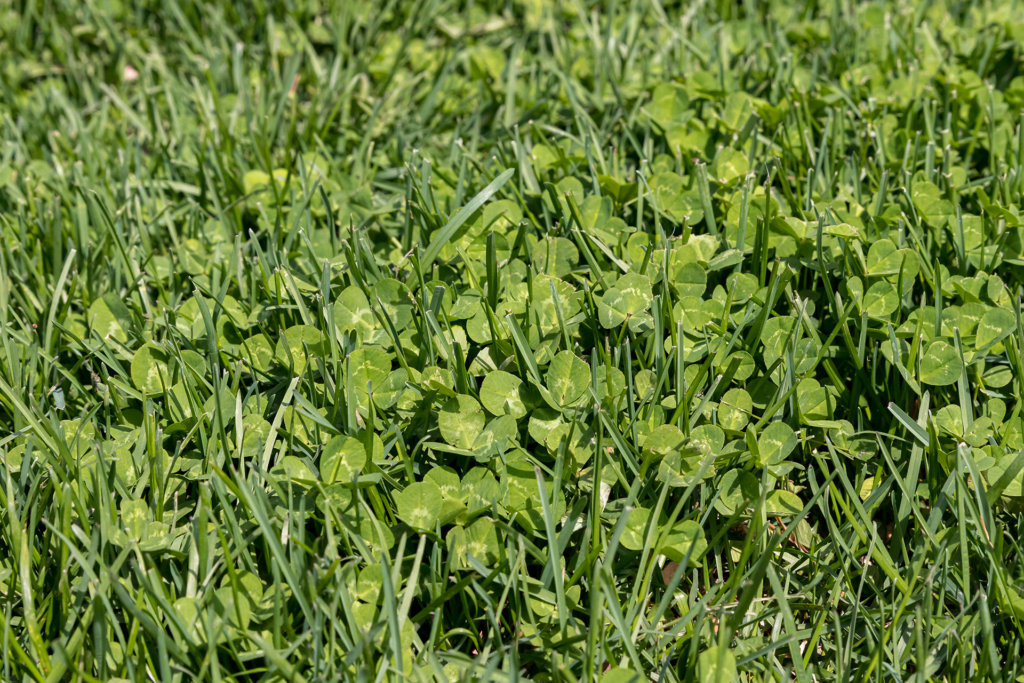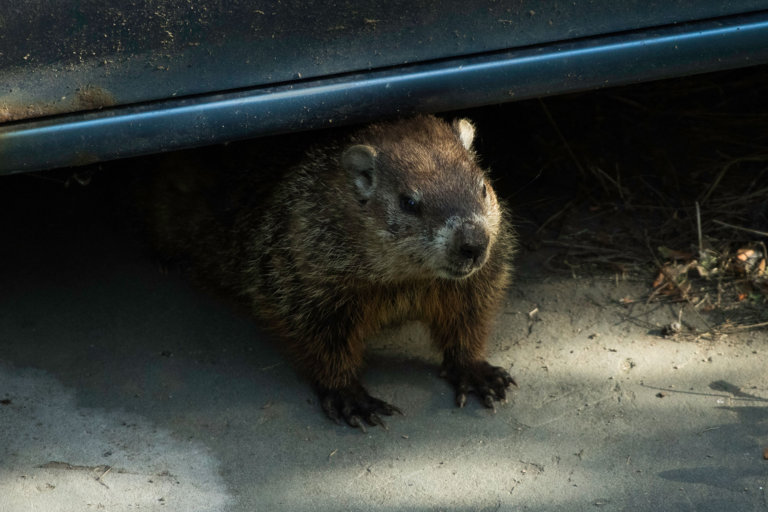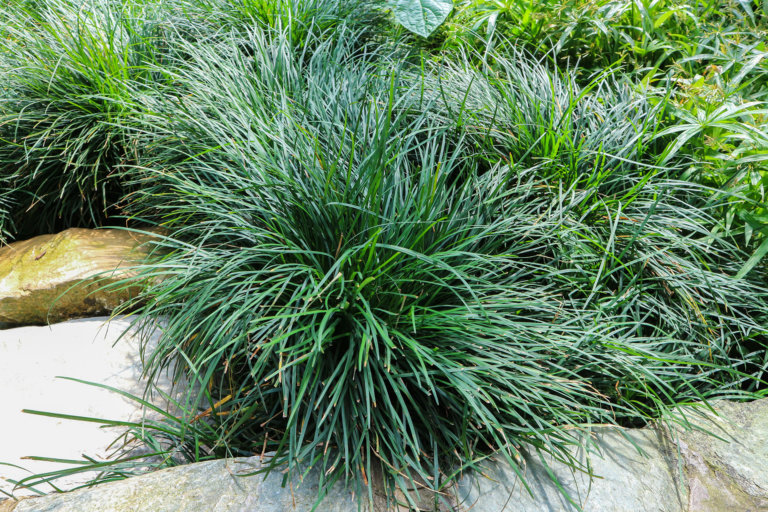Almost everyone who has a home with a front or back yard has had to deal with clover. It’s a problem you can remedy yourself, and you don’t have to use harsh chemical treatments or help from a professional to accomplish it.
If you’re seeing large clumps of clover in your lawn, you’re likely looking at an undernourished lawn. Maybe you’re someone who doesn’t mind clover in your yard as you want its nitrogen-enriching benefits. However, most homeowners just want to get rid of clover as naturally as possible.
So, how do you get rid of clover without harming the rest of your lawn?
Method 1: Remove Clover by Hand or Use a Mower
You can easily rid your lawn of clover if you catch any growth when it first appears and develops in small patches. Use a garden spade or your hands to loosen the soil around the base of the clover. Once it’s loose enough, you can extract the clover (roots and all). You can also go over it with your lawnmower, but it will return faster than you think. So, mowing is pretty much a temporary quick fix.
There are advantages to removing clover by hand or mowing over it, as you won’t affect the surrounding grass. If you regularly remove clover this way, you won’t have to worry about using chemical-laced products that could be harmful to your grass. The main disadvantage of these methods is that you may not be able to keep up with uncontrollable clover growth due to limited gardening time, labor constraints, or poor weather.
Method 2: Use Corn Gluten Meal
Whoever thought a corn-based product would help to remove clover? It may sound weird, but it does work well. Once you spread it over the spots you want to eliminate, a release of dipeptides (organic compounds) goes into the soil. This prompts a drying process within the clover seeds that inhibits the seeds from sprouting.
You can determine the necessary amount of corn gluten meal by the square footage of your lawn area. Once you spread the gluten meal, the clover spots will require sufficient water to release the compounds, and some time to dry. Most garden centers and online retailers sell corn meal gluten for purchase.
The good thing about using corn gluten is its ability to rid your yard of clover without harming nearby plants. It can get a bit expensive though, depending on the size of your yard. You also need to make sure it’s thoroughly wet to do its job, as dry applications won’t work. One other disadvantage of gluten meal is its ineffectiveness with perennial weeds compared to other varieties of weeds.
Method 3: Deprivation of Sun and Oxygen
When you cut off sunlight and oxygen to clover, you can eventually eliminate it from your lawn. The process involves placing garbage bags or plastic sheeting over the top of sizable areas of growth. Securely fastening the plastic is important. It keeps the bags or sheeting from blowing away or lodging against areas of unaffected grass. If you allow the process enough time, you can eliminate clover in a few weeks.
This method is easy to apply and doesn’t require continuous monitoring or attention to the clover patches. Your main involvement will be in keeping the plastic secured. However, it can take a while to remove the clover, which could be a problem if the lawn has to be used for other purposes. Also, considerable sheeting is necessary to cover extensive areas. Damage to grassy areas can happen if the sheeting or plastic bags come in contact with the grass or other plants.
Method 4: Vinegar and Dish Soap
Vinegar is one handy item, and when you combine it with dish soap, it is effective at getting rid of clover and other weeds. Simply mix vinegar with a little dish detergent and put it in a spray bottle. Spray the clover patches on your lawn, and watch the areas dry up and die.
The acetic acid in vinegar draws out the water from the clover, and the dish soap breaks down the outer layer of the weed so the vinegar can get into the whole plant.
The advantage of vinegar is its availability, ease of use, and low cost. However, you need to be careful as any over-spray that reaches grass or other plants can damage or kill them. You want to use it on a sunny day with no wind. Also, the mixture may not go directly into the roots of clover, so additional spraying might be necessary.
Why You Might Want to Leave clover
Though many homeowners consider any weeds, including clover, to be detrimental to the aesthetics of their lawns, clover can be beneficial. With the ability of clover to bring nitrogen to the soil, a lawn’s growth can increase, particularly after grass has decomposed. Clover can fix the lack of nutrients in poor soil that is deficient in nitrogen. It has the uncanny ability to take nitrogen from the air and change it to a form adaptable to plants and directly transfer it to the poor soil. The result is usually nice green grass.
Frequently Asked Questions
Why does my lawn have so much clover?
A lawn usually has clover because it lacks essential nutrients that the right fertilizer provides. The grass is unable to nurture itself with essential nutrients on its own.
Since clover is able to create its own nutrients or fertilizer, it is able to survive in almost any environment, including your lawn. Any lawn that is lacking essential nutrients can show an overabundance of clover.
Is clover a sign of a healthy lawn?
Nope. Clover is a sign of a lawn that is unhealthy. Grass with an excess of clover is lacking in nitrogen and other nutrients that come from fertilizer. Since clover takes nitrogen from the air and absorbs it, there is no need for it to take any other nutrients from the soil of your lawn. The presence of clover usually shows that a lawn is not doing well.
Does clover come back every year?
Clover is a perennial plant, so it can last all year or through several or more years. Depending on the climate and region where clover grows, it may die out during the winter but will probably return in the spring.
Is it good to use clover in a lawn mix?
Since clover enriches soil on its own, it can be beneficial and effective when used as an ingredient in lawn seed mixes.
What is the most beneficial type of clover for a lawn?
White clover appears to be the best variety of clover for grass mixes. It is low growing and blends well with most lawn grasses while providing increased nitrogen to the soil.







